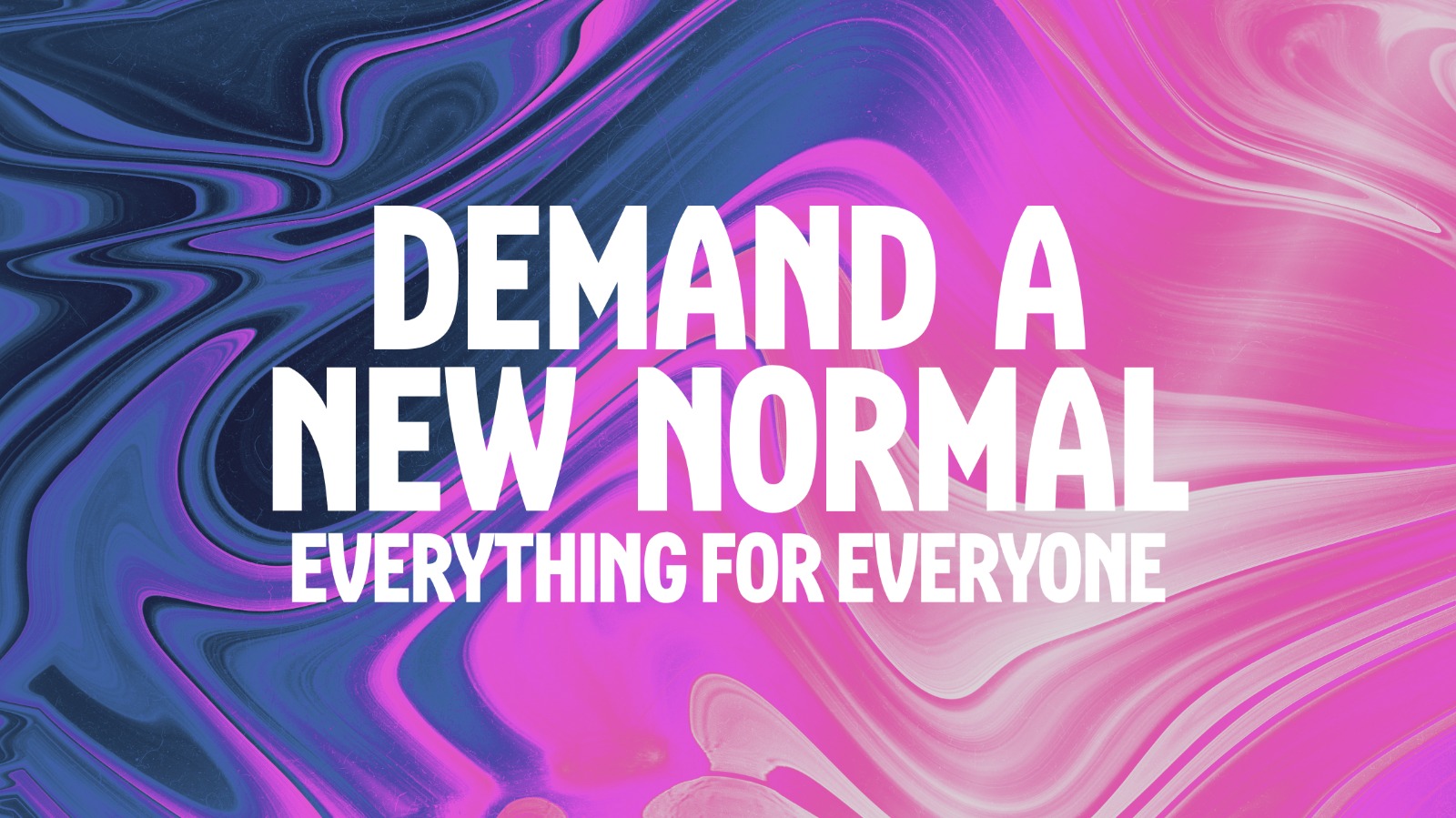We need to recognise that ‘staying at home’ doesn’t mean the same thing to everyone. For some, homes are a sanctuary. For others, the home is another place of work, where cooking, cleaning and childcare take up the majority of their time and energy. There are many for whom the home is a place of danger, with time outside, if possible, being a respite from abuse. For people with mental or physical illness, for the elderly and disabled, the isolation they may face through being confined to the home can be deeply unhealthy, at times terrifying. Some people don’t have homes at all; being shunted from one sofa to another, sleeping in night shelters or out on the streets are dangerous “options” during this pandemic for those that have few already.
Abused people can’t escape
For many, self-isolation and travel restrictions will trap them with their abusers, while anxiety and economic precarity may add to the intensity of abuse. In Italy and China, domestic violence organisations have seen a surge in calls after the imposition of quarantine. Those living in women’s shelters will, like those in care homes or similar multi-occupancy accommodation, be at greatly increased risk of infection. Restrictions on movement may ultimately make it impossible for people to leave their abusers even if they fear for their lives.
The NHS can’t cope
The government’s continuous underfunding of the NHS has left us with a system without slack. There already weren’t enough nurses. Now those we have will be asked to make immense personal sacrifices. Chinese media has been promoting stories praising the “saintliness” and “warrior-like” nature of women working on the frontline as nurses. Over here, we already see narratives of heroism and gratitude emerging. But this is inadequate. Nurses working in Hong Kong during the SARS outbreak reported immense personal costs and feeling ‘sandwiched’ between personal and professional responsibilities. More than gratitude, nurses need decent pay, safe working conditions and support for their families.
Carers can’t call in sick
As health systems become stretched, many people with COVID-19 will need to be cared for at home. The majority of such work is still done by women. Carers will be at increased risk, and are not currently eligible for Statutory Sick Pay. They will simply be expected to perform this work for free, at the risk of their livelihoods.
Parents can’t rest
If schools are eventually closed, it will be a nightmare for working parents, especially mothers. Those who are poor, working in service jobs that cannot be done from home, and those without paid leave are especially vulnerable. Those who cannot work from home will rely on friends, relatives, neighbours or lose their jobs. But even those who are able to work from home will have to juggle the demands of their families with the need to keep working. There’s been a lot of writing about the ‘double shift’ worked by women – but women who are caring for family members while working or studying remotely will have to do both those shifts simultaneously, without breaks.
Nobody can get through this alone
Many of those who are mentally or physically ill, disabled or elderly live isolated lives. The social contact they do have is a lifeline. Most mental health conditions are exacerbated by social isolation, and sufferers are often medically advised to actively seek out social activities. Support groups, social groups, hobby groups and therapy groups make a huge difference and can save lives. To those who are already isolated, social distancing will come at a great cost. The impact of chronic deprioritisation of mental healthcare, social care and disabled access has been especially severe for those who live alone. Our fear is that in the coming months, many will die alone as well.
Disabled people can’t survive on less
The government’s new emergency legislation includes reducing Care Quality Commision guidelines on what councils provide to elderly and disabled people. This is already at dangerously low levels following years of austerity. Disabled people who require help with eating, using the toilet or washing will be expected to simply make do with less. But eating, washing and toileting aren’t optional.
Care workers can’t stop
Guaranteeing disabled people’s needs are met is non-negotiable, but it can’t be achieved by exploiting care workers further. The majority of workers in care homes, live-in carers and daily care workers are women. They can’t work from home, and can’t stop working because they’ll be needed more than ever. They will face exhausting shifts with no extra wages and a higher risk of infection. Cleaners, most of whom are migrants, are already being expected to work longer hours to deep-clean public spaces.
Many can’t access healthcare
Many people have difficulties accessing healthcare in the first place. Migrants, those for whom English isn’t a first language, trans people, sex workers and other marginalised groups often avoid healthcare settings because they fear discrimination or worse. Healthcare workers have been forced to collaborate with immigration services and the police; surgeries and hospitals aren’t always safe places for those threatened by the state. These barriers to access will become more dangerous in a time of epidemic – and many fear that when it comes to triage situations where not everyone will be given lifesaving intensive care, they will be deprioritised because of stigma and prejudice.
Homeless people can’t stay at home
There are 320,000 homeless people in the UK. Every night, 5,000 of them sleep on the streets, where their health is already at serious risk. Covid-19 will be deadly to many of these people, who have no way to protect themselves or to self-isolate. The rest either live in temporary accommodation or homeless shelters, where – reflecting a common theme – the crowded conditions will put them at increased risk. An uncounted number aren’t even identified to local councils; they lack homes but, not expecting to receive any help, serially ‘couch surf’ with friends or family. Even this meagre accommodation may be at risk, since movement restrictions will make it difficult to switch between dwellings. Unless their friends and relatives are able to house them on a longer-term basis, they will join the thousands on the streets.
We can’t ignore who’s responsible
We also need to recognise that these circumstances don’t come out of nowhere. Women’s work in the home has been perpetually undervalued and dismissed. Underfunding of domestic violence shelters, insurmountable barriers to getting council housing, and lack of any kind of adequate support for disabled people have left many with no option but to continue living with their abusers. An ableist and ageist society, devaluation of mental health, and insufficient attention to the social causes of mental illness has resulted in policies that left disabled people, the elderly and those with who are mentally unwell without adequate levels of care even before this crisis. Successive anti-terror and anti- immigration policies have turned the NHS into an arm of the surveillance state. The government and councils have allowed people to sleep on the streets or in unsafe shelters, or to sofa surf perpetually with no hope of stability, while properties stand empty and the super-rich dig deep basements to house their home gyms and entertainment systems. The cars of the rich are more safely and securely housed than the bodies of the poor.
We demand care
We can’t undo decades of neglect any more than we can halt this epidemic, but we can demand mitigation measures:
- A Corona Basic Income for all, meaning those caring for others aren’t forced into penury by taking time off work.
- Increase domestic violence services and make them accessible by phone and online. Data from Italy and China are showing a spike in abuse and gendered violence.
- Much more help for the mentally unwell, starting now, accessible online and by phone.
- Immediately house anyone without a home or needing to leave their household due to abuse – which means private space with enough facilities and storage space for people to self-isolate.
- No reduction in care standards. Disabled people and those in care homes can’t be expected to survive on less than the extremely minimal care they already get.
- Compensate care workers inside and outside the home for the increased workload and risks they face. Care workers should also be provided with PPE and extra training.
- Men to take on responsibilities for care and housework. Collectivise public disinfection and cleaning rather than assuming that precarious workers will take on this burden.
- Safeguard reproductive and gender-affirming health services. We know the NHS will be under severe pressure, but abortion services, trans healthcare, sexual healthcare and maternity care are all life-saving and essential.
- Valuing the lives of disabled, elderly, precarious and immiserated people in triage situations. We are more than our QALYs – we provide richness and texture to society. Our knowledge, skills and perspectives are needed.
- Allowances for the fact that those working and studying from home may simultaneously be caring for children, sick people, or elderly relatives.
- Talk about saintliness or self-sacrifice isn’t enough; we need to recognise how much unpaid work this country depends upon, and how much more vital that work becomes in a crisis..
And when the worst is over, when we’re surveying what we have left, we must learn lessons about what’s really important. The world can survive without marketing strategy meetings – it can’t survive without care. What would it look like to have a society that truly reflected that?





